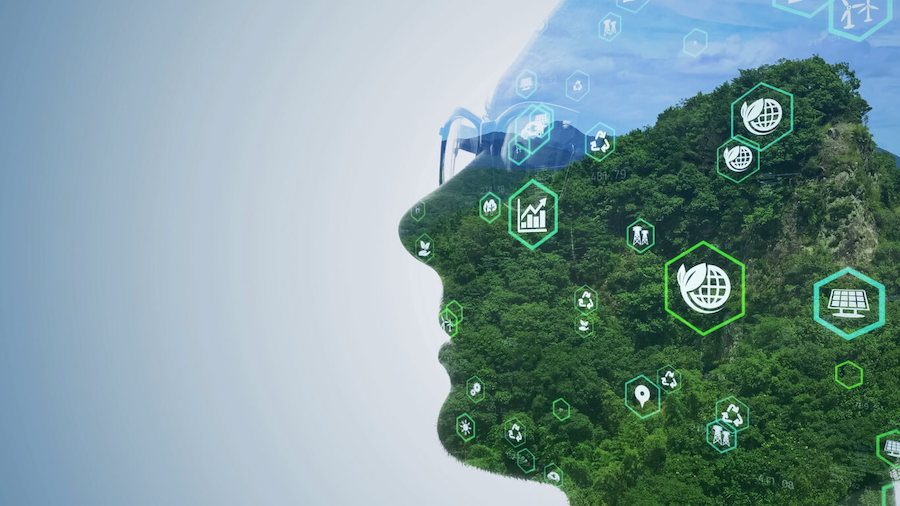As the impacts of the global climate crisis continue to mount, there is an increasing worldwide push by governments and businesses for more opportunities and investment in sustainability and sustainable development. The UN’s adoption of the 2030 Agenda for Sustainable Development serves as a model for organizations and corporations around the world.
There has never been a more important time to get into a sustainability career, as jobs and positions related to sustainable development and mitigating environmental impacts are an increasingly critical part of everyday business strategy and operations. These jobs are also highly supported positions, as Brookings has found that green jobs pay better than comparable jobs that aren’t related to clean energy or sustainability.
If you’re looking for jobs that help the environment and communities, then you have a lot of potential options available. Here’s an overview of different career paths, popular job positions and how you can best position yourself for a successful career in sustainability.
What Do We Mean By Sustainability?
All too often, sustainability gets used as a buzzword to “greenwash” business practices and development that’s wasteful, exploitative and destructive. Let’s be clear that business as usual is not sustainable – instead, at the University of San Diego we adhere to Julian Agyman’s notion of “just” sustainability, which is “the need to ensure a better quality of life for all, now and into the future, in a just and equitable manner, whilst living within the limits of supporting ecosystems.”
The work of sustainability is so all-encompassing that it is helpful to look beyond the countless specific environmental challenges to instead consider the six Grand Challenges of the 21st century laid out by the U.S. National Academies of Engineering, Sciences and Medicine (NAM).
- Sustainably Supply Food, Water, and Energy
- Curb Climate Change and Adapt to Its Impacts
- Design a Future Without Pollution or Waste
- Create Efficient, Healthy, Resilient Cities
- Foster Informed Decisions and Actions, and the Ultimate Challenge,
- Preparing the Engineering Field to Address a New Future
Far from being limited to just climate management or pollution reduction, true sustainability touches all aspects of every industry. In fact, environmental impact is just one of three pillars of corporate sustainability — the other two being social impacts and good business governance.
“For the survival of our planet, as well as for our own survival, all interventions that impact the environment must be sustainable. Complex systems thinking, critical analytical abilities, and innovation will all be necessary for fostering positive change on our planet.” – Dr. Paul Kadetz
What Are Top Sustainability Career Options?
You can find sustainability jobs in every possible industry. Here are some examples:
- Environmental Management: These jobs directly relate to environmental health and the natural world, ranging from protecting animal species, reforestation and national park conservation to clean water management, waste management and handling hazardous materials. Career paths include education, regulation, legislation, research and development, engineering and conservation.
- Clean Energy Production: Another set of jobs closely associated with sustainability, these positions concentrate on developing affordable and accessible alternatives to fossil fuels, including wind, solar, hydro, biomass, geothermal and nuclear energy. Career paths include engineering, marketing, law, finance, sales and construction.
- Energy Efficiency: Sustainability also means using energy in an efficient and responsible manner. These jobs focus on designing, implementing and governing energy consumption in buildings, appliances and transportation. Career paths include manufacturing, installation, construction, sales, marketing and regulation.
- Health Care: Human health is an essential component of a sustainable future, and so health care services are necessary for the resilience of society and work, in addition to the improvement of wellness for future generations. Career paths include nursing, community and social service, administration, research and development.
- Military and Public Service: Government has a vital role in providing services or support that the public sector cannot. This includes civil planning, disaster response and establishing policies to promote sustainability goals. Career paths include law, legislation, armed services and public safety.
- Community Development: Social and community development lies at the intersection of government, private enterprise and nonprofit organizations. While the government can provide necessary services and private enterprises can invest in needed areas, nonprofits help service areas that are overlooked or underserved. Career paths include social services, community organizing, civil engineering, education and public safety.
- Entrepreneurship: Across different industries there’s a need for innovators who are looking to design new products and business models that will help enable sustainable development. Startup businesses and new technology and software development have an important role to play in achieving sustainability goals. Career paths include engineering, marketing, communication, sales and project management.
- Consulting: Consultants focus on working with companies, organizations and government agencies to make them more sustainable. Consultants will analyze current operations, consult with employees and customers and then report results to managers to recommend improvements and suggest areas for training.
What Are Top Entry-Level Sustainability Jobs?
While your ultimate goal may be to achieve a management or director level position, there are rewarding and well-paying entry-level sustainability jobs that are achievable with the right combination of experience and education. Here’s a sample of some of the more popular positions, along with salary estimates*.
- Chemical Engineer: Researches, designs and develops processes and equipment for the manufacturing, planning and testing of chemicals, fuels, pharmaceuticals and other products. Estimated salary of $85,000.
- Civil Engineer: Researches and designs ways to create, improve and protect infrastructure and systems within the public and private sector, including roads, buildings, tunnels, dams, bridges and water supply and sewage systems. Estimated salary of $74,000.
- Ecologist: Performs field work to study the relationship between animals and plants to their environment, as well as to measure human impact of industrialization, pollution and conservation on organisms, habitats and environmental conditions. Estimated salary of $63,000.
- Energy and LEED Analyst: Works with property owners to design buildings, makes improvements and introduces products and methods to better meet the standards of Leadership in Energy and Environmental Design (LEED) and overall energy efficiency. Estimated salary of $65,000.
- Environmental Health and Safety Analyst: Inspects facilities and supervises practices to ensure that organizations are following all health, safety and environmental regulations; also develops health and safety procedures for eliminating hazards and handling hazardous materials. Estimated salary of $94,000.
- Environmental and Sustainability Planner: Reviews and assesses potential environmental effects of new development projects, ensuring that proper precautions are taken to reduce waste and preserve the health and safety of the soil, air and water. Estimated salary of $60,000.
- Health and Safety Engineer: Researches and designs ways to ensure that work environments are safe and protected; reviews plans and specifications to ensure that chemicals, machinery, software and other products will not cause harm or damage the environment. Estimated salary of $77,000.
- Renewable Energy Analyst: Analyzes data on renewable energy use to measure overall energy efficiency and consumption, also develops renewable energy models for new and existing buildings to communicate the benefits of renewable energy. Estimated salary of $78,000.
- Social Compliance Specialist: Ensures that an organization is operating in full compliance with laws, regulations, practices and standards meant to promote social good and sustainability. Estimated salary of $62,000.
- Sustainability Consultant: Consultants who specialize in working with organizations to identify areas to improve efficiency and waste management in a cost effective and socially responsible manner. Estimated salary of $71,000.
- Sustainability Coordinator: Supports the implementation of sustainability programs within an organization or specific projects by advising management and staff on program development and creating new sustainability initiatives. Estimated salary of $56,000.
- Sustainability Specialist: An internal position that pushes for sustainable thinking and practice across all areas of an organization and engages in public outreach and marketing. Estimated salary of $65,000.
*Salary estimates sourced from Glassdoor and Salary.com are median values as of February 2022 and are subject to change.
Where Do Sustainability Professionals Work?
Sustainability jobs are available everywhere. No matter your chosen career path or preferred industry, there are an abundance of opportunities in government, education, private industry and nonprofit organizations. A search for sustainability jobs found listings for all of the following employers — who were only a sample of everything that was listed*.
- Dell Technologies
- City of Anaheim
- Hello Fresh
- University of Massachusetts
- Indeed
- Pratt & Whitney
- IKEA
- Under Armor
- Anthem, Inc.
- Good.Lab
- Verdani Partners
- TikTok
- BlackRock
- Sony Electronics
- BioGen
- Whole Foods Market
- L’Oreal
- IBM
- Consumer Reports
- World Wildlife Fund
- Microsoft
- World Food Programme
*Job search was conducted in February 2022 on LinkedIn and SimplyHired. Available job listings are subject to change.
Careers in Social Entrepreneurship
Not all professionals take positions in established companies. Those who are committed to create and manage their own equitable organizations can engage in social entrepreneurship to transform their ideas into innovations.
Social entrepreneurship is a mix of business, charity and social movement models designed to balance economic and social goals. It’s a problem-based approach of developing small businesses to solve community problems in a transformative way to promote social justice and sustainability. Social entrepreneurship tends to have a higher percentage of underrepresented populations and a more equitable gender distribution than commercial enterprises. If you have an innovative approach to solving any of the grand challenges that our societies face, then you may find success in launching your own startup enterprise.
What Education Is Needed for Sustainability Careers?
A bachelor’s degree is the minimum level degree needed to find employment in technical and professional fields like engineering, organizational consultancy, policy analysis and research. A bachelor’s degree also provides helpful training and instruction in important communication, project management and critical thinking skills.
Coursework at the bachelor’s level directly related to sustainability may include classes on water management, environmental economics, energy issues and planning sustainable communities.
For leadership level and more technical careers, a master’s degree may be preferred. Master’s level courses will include coursework in advanced and specialized topics, extensive research training and independent projects that can lead to new contributions to the field. Master’s degree programs offer:
- Required specialized training for advanced technical and scientific careers.
- In-depth experience for enacting sustainable practices within a particular field.
- Leadership and collaborative experience to achieve an advanced role within a company or organization.
The curriculum for a master’s degree depends on the program, but is often a mix between classes, independent related projects and hands-on career training.
Discover a New Type of Master’s Degree That’s Building Sustainable Solutions
Across Disciplines — Watch the MESH On-Demand Webinar
How to Switch to a Career in Sustainability
If you’re interested in switching to a career in sustainability, the sheer variety of available jobs affords you a lot of leeway. Depending upon your desired job, you can leverage an undergraduate degree in:
- Engineering
- Economics
- Social science
- Political science
- Health science
- Environmental science
- Public administration
If you don’t have much background in sustainability studies, then you’ll want to take a few steps to determine how to best make your career switch:
- First, clarify your area of interest. Are you more engaged with working on renewable energy, environmental protection, water management, community health or other areas? Your passion will largely determine what further experience and education you’ll need to attain.
- Determine your preferred area of employment. Does it matter if you want to work within a private industry, at the state or federal level or for non-profit and charity organizations? This can help determine not only an area of study, but also networks and social contacts that you’ll want to foster.
- Research sustainable positions that are hiring within your preferred areas. Most major job search sites now have listings for careers in sustainability. Read up on their educational preferences and experience requirements. You’ll need to attain those qualifications in order to be eligible for consideration.
- Find programs that can help you further your professional development skills or develop relevant experiences. This is especially important if you’re interested in a leadership or consulting position and can include:
- Research and analytical skills
- Problem-solving strategies and critical thinking skills
- Communication and interpersonal skills
Investigate if there are any volunteer opportunities available, as that can be a great way to network and learn more about possible careers and position requirements. Sustainable positions, especially in the public and non-profit sector, are always looking for assistance with community outreach and public support.
How to Advance a Career in Sustainability
If you already have a sustainability job but are hoping to further advance your career, there are some steps you can take to strengthen your resume, build experience and present yourself as a leader in sustainability.
- Get industry certifications — Many industries are now offering sustainability certifications. These can be for energy, building, water, chemicals, health and wellness and more. Research which certifications are available for your line of work.
- Engage in networking — Talk to people within your industry who are also interested in sustainability and connect over social media platforms and online groups. The need to achieve a sustainable future knows no boundaries, so you’re likely to find helpful assistance and collaborative opportunities outside of your local region.
- Enroll in continuing education programs or graduate level coursework — To have a career in sustainability is to have a career of lifelong learning. There are always new methods, new approaches and new technologies to be designed and developed. Achieving a master’s level degree in a program dedicated to sustainability can more than boost your credentials — it can build your skills and knowledge to help you become a leader and innovator in your field.
- Join professional organizations — More and more professional organizations are forming to bring together like-minded individuals to meet the challenges of climate change and to achieve sustainable development. Research and apply for organizations in your professional field dedicated toward sustainability. Examples include:
Sustainability vs. Sustainable Development
There is a tension between what’s considered sustainable and how to achieve those goals while still meeting the economic needs of countries and communities. You can think of sustainability as more of a long-term goal of managing resources without depleting them for future generations. This concerns environmental, economic and social sustainability, which relate to meeting people’s current needs without compromising future generations.
When we talk about sustainable development, we’re referring to the many processes and pathways to achieve long-term economic well-being and a good quality of life without compromising future generations’ ability to meet their own needs. UNESCO discusses sustainable development along the lines of agriculture and forestry, sustainable production and consumption, good government, research and technology transfer, education and training.
A New Approach to Sustainability and Sustainable Development
The University of San Diego’s Master of Science in Engineering, Sustainability, and Health (MESH) Degree is an exciting new program designed for people who want to take action in pursuing sustainable development that is just and equitable.
This program is centered around transdisciplinary learning to understand the challenges of sustainability and the best courses of action for addressing matters related to climate change, biodiversity, disaster recovery and prevention, consumption and production.
MESH graduates will apply their knowledge in a manner that balances engineering performance with planetary, environmental and human health. This can further the application of engineering principles toward a sustainable and healthy future.
“In MESH we are bringing together the wisdom of ecologists, sociologists, experts in just transitions, with engineering and public health, so that we can understand the current context and consider what is possible to ‘sustain’ in the long term, and also ensure that this is shared equitably.” – Dr. Caroline Baillie
Whether you’re a new graduate or a working professional who is interested in pursuing a career in sustainability or sustainable development, we’d like to hear from you as we work to build new, holistic solutions to the grand challenges that we all face.
Contact us for more information about the MESH degree program.
Hear More About the Transdisciplinary Vision Behind the MESH Program in Our
Free On-Demand Webinar — Watch Now
Resources for Exploring a Career in Sustainability
Interested in learning more about sustainability careers and other jobs that help the environment? Explore these additional resources:




